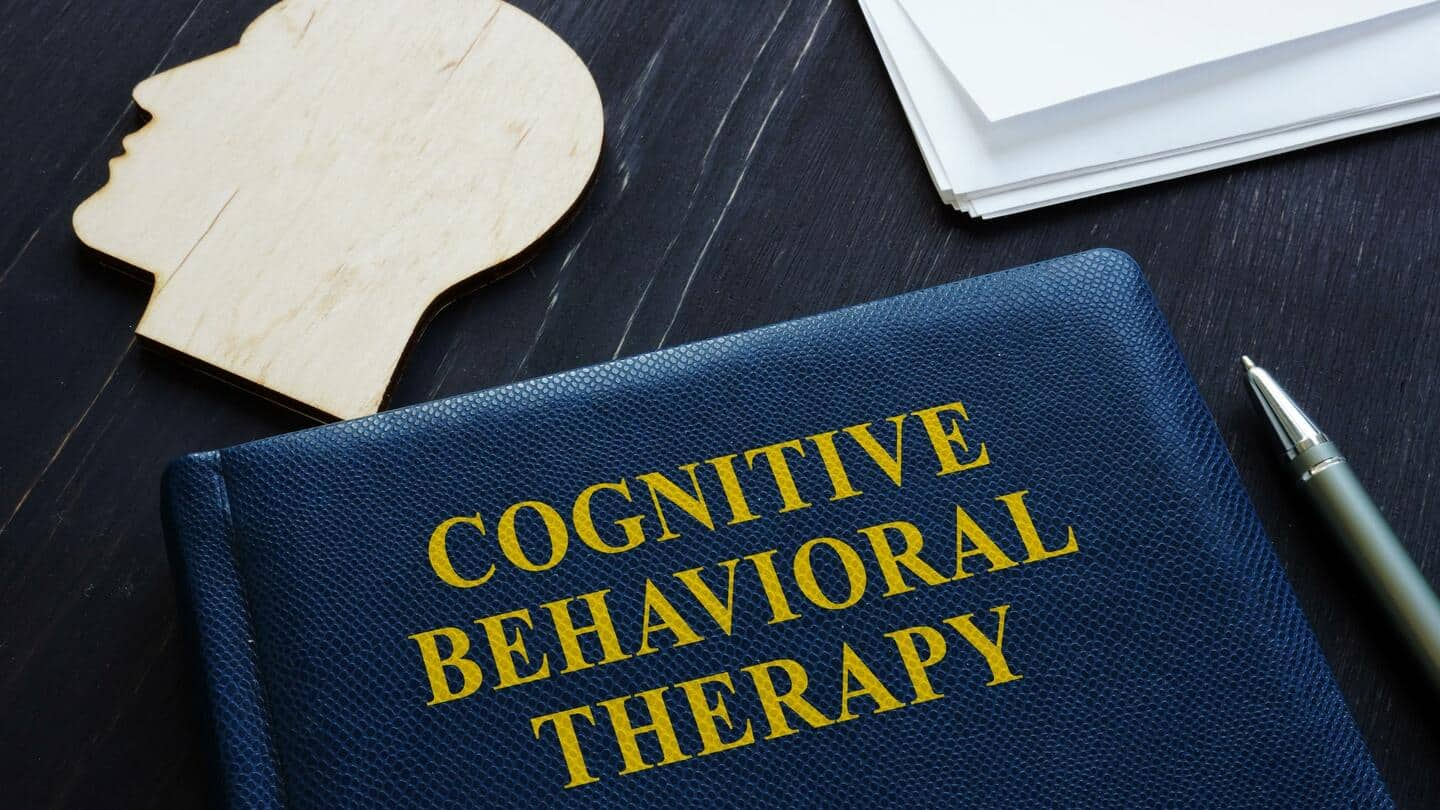
Cognitive Behavioral Therapy: What it is and how it works
What's the story
Whether you are struggling with a mental health condition or just finding it hard to control your anxiety, cognitive behavioral therapy (CBT) can be a helpful tool for you.
CBT aims to help you in changing your mindset and behavior by realigning your distorted thought patterns.
Contrary to popular belief that therapy involves just chatting with a therapist, CBT is actually very well-structured.
Information
What is CBT?
Merriam-Webster dictionary defines CBT as "psychotherapy that combines cognitive therapy with behavior therapy by identifying faulty or maladaptive patterns of thinking, emotional response, or behavior and substituting them with desirable patterns of thinking, emotional response, or behavior.
Categorization
Types of CBT
Though there can be many types of CBT, it can broadly be categorized into the following types:
Cognitive therapy - Identifying and changing inaccurate or distorted thought patterns, emotional responses, and behaviors.
Dialectical behavior therapy - It involves treatment strategies such as emotional regulation and mindfulness.
Rational emotive behavior therapy - It involves actively challenging irrational beliefs and learning to change these thought patterns.
How
How does it work
CBT works by identifying, dealing with, and changing unhelpful thinking so that your mindset, behaviors, thought patterns, and overall well-being improve with practice.
When you learn to feel about specific situations differently, it will be easier to understand your behavior and adapt to it in the future.
In CBT, you work with your therapist to manage overwhelming emotions and unhelpful behaviors.
Technique
The techniques involved
Identifying negative thoughts leads to self-discovery and provides insights essential to treatment.
Practicing new coping skills teaches skills that can be used in real-world situations.
Goal-setting helps identify short-term and long-term goals.
Problem-solving helps in learning how to identify and solve problems that may arise from life stressors.
Self-monitoring involves tracking behaviors, symptoms, or experiences over time and sharing them with your therapist
Advantages
How does it benefit
CBT's positive effects can last long even after the treatment has stopped.
It is a great alternative to medication. Unlike talk therapies, the duration of treatment is pretty short.
CBT can take place one-on-one, in groups, or even on your own.
The skills CBT often emphasizes, like problem-solving, personal interaction, and time management can serve you in many aspects of your life.
Disadvantages
Limitations of CBT
It takes big commitments and persistence to get the results you want.
For people with more complex or intense mental health conditions, CBT may not be enough.
Since part of CBT is addressing how distorted thinking makes you feel, therapy can temporarily stir up or worsen emotional symptoms.
It can be expensive and out of reach for many as well.